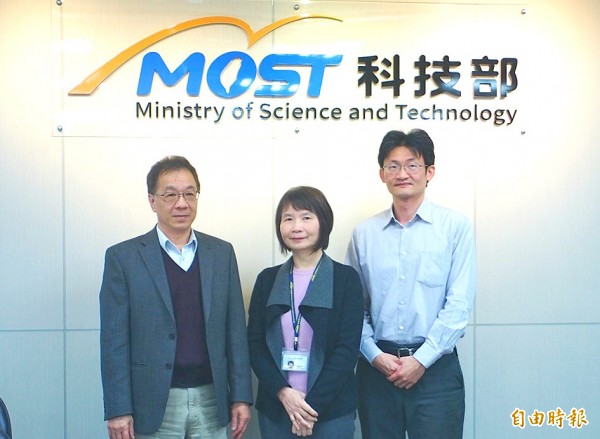《TAIPEI TIMES》 Survey exposes shifting identity

Academia Sinica Institute of Sociology researchers Fu Yang-chih, left, and Lin Thung-hong, right, announce the results of a social change survey at the Ministry of Science and Technology in Taipei yesterday. Photo: Chien Hui-ju, Taipei Times
By Chien Hui-ju and Sherry Hsiao / Staff reporter, with staff writer
Although the number of people in Taiwan who identify as Taiwanese has fallen since its peak of 75.15 percent in 2015, it has remained steady at 60 to 70 percent, the Ministry of Science and Technology yesterday told a news conference announcing the results of its Social Change Survey, which has been conducted for more than three decades.
In 1995, 32.13 percent of people in Taiwan identified as Taiwanese, Academia Sinica Institute of Sociology research fellow Lin Thung-hong (林宗弘) said.
It has since skyrocketed 43 percentage points and in 2015 topped 75 percent, he said.
Although the theme of the survey varies from year to year, questions on important topics such as national identity are almost always included, he said.
The questionnaire asked participants whether they identified as “Taiwanese, “both Taiwanese and Chinese,” “both Chinese and Taiwanese” or “Chinese,” Lin said.
In 1992, when the question was first included, more than half of respondents said they have a dual national identity, but by 2015, the proportion had fallen to about 23 percent, he said.
For this year’s questionnaire, the researchers included questions about emerging technologies and the risks they pose, including views toward artificial intelligence, online information security, fake news and nuclear energy, he said.
The findings could also be applied to policymaking, researchers said.
For example, in 2017, 48.39 percent of men who earned less than NT$30,000 per month were unmarried — the highest ever, Lin said.
This year, the government raised the minimum monthly wage to NT$23,100, he said, adding that if employment conditions for young workers continue to improve, the marriage and fertility rates would rise.
The survey was begun by the ministry — which was then called the National Science Council — in 1984.
Topics have included family, education, social stratification, social mobility, political culture, communication, culture and value judgements, religion, interpersonal relations and social networks, institute research fellow and project leader Fu Yang-chih (傅仰止) said.
The survey has collected more than 125,000 responses over 34 years, researchers said.
It has been called one of the world’s largest surveys of its kind, its Web site said.
Taiwanese researchers have also participated in international collaborations to compare results from the survey with those from more than 30 other nations, Fu said.
新聞來源:TAIPEI TIMES
%http://www.taipeitimes.com/














